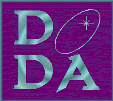|
- Campus Map: here
The conference will take place at
Myhal 150 & Lobby, google map
Myhal Centre,
55 St George St,
Toronto, ON M5S 0C
-
Getting to Campus:
Toronto has two airports, Peasron International Airport and Billy Bishop Toronto City Airport. Note that Billy Bishop is particularly convenient (nearly walking distance from campus) if you happen to be coming from a location that has connecting flights. Also note that if you are flying out of Pearson back to the US, you will go through US Customs at Pearson, so you may want to budget some extra time when getting to the airport for your return flight.
Additional travel information can be found here.
-
Accommodations:
A block of rooms at the New College on U of T’s campus has been reserved for DDA attendees. Room rates are $60 CAD / night for singles and $85 CAD / night for doubles plus tax (13%). To reserve a room fill out the PDF form. A one-night nonrefundable deposit is required to book. We recommend booking early, as reservations are filling up fast.
There are many hotels and lodging options near campus, and elsewhere in Toronto, though they can get expensive.
|
Late Posters are still being accepted!

The abstract submission deadline was Thursday, Feb. 15, 2024. However, Late Posters are still being accepted. The Late Poster deadline is Monday, April 15, 2024.
We aim to have 3 special sessions:
- On the Formation and Dynamical Evolution of Hot Jupiters
- How Thousands of New Satellites Will Affect the Sky and Astronomy
- Mentoring from the DEI Lens
You can submit an abstract to either of these sessions for a general contribution. Note that while you can only submit one abstract, if you submit an abstract to the Mentoring from the DEI Lens session, you may submit an additional science talk.
Registration
Registration is now open!! Here is Information on Registration Rates.

Program
The meeting program is now available:

Plenary Speakers
Dr. Alessandra Celletti and Dr. Carl Rodriguez

DDA’s annual Dirk Brouwer Career Award recognizes a major contributor to the field of dynamical astronomy who demonstrates excellence in scientific research, has had a proven impact and influence in the field, demonstrates excellence in the teaching and training of students, and provides outstanding advancement and other support of the field through administration, public service, or engineering achievement. The 2023 award goes to Professor Alessandra Celletti (Universita' di Roma Tor Vergata) to recognize and celebrate her outstanding contributions to the advancement of KAM theory and to the study of regular and chaotic dynamics of Earth’s satellites and space debris. Learn more
DDA’s annual Vera Rubin Early Career Prize recognizes an early career dynamicist who demonstrates excellence in scientific research in dynamical astronomy or a closely related field, has had an impact and influence on these fields, and shows a promise of continued excellence as demonstrated by past practice in research, teaching, and the advancement and support of the field of dynamical astronomy. The 2023 prize goes to Professor Carl Rodriguez (University of North Carolina), for his novel and sustained contributions to our understanding of dynamics of stars in dense stellar systems as well as his pioneering considerations of dynamical scenarios for gravitational wave sources originating from globular clusters. Learn more
Mentoring from the DEI Lens
Features: Dr. Sherard Robbins (Visceral Change)

The Missing Link: Mentorship as The Key to Success
The talk will focus on the importance of mentorship for students, postdocs, and faculty. Using a multicultural lens, this session will explore the ways in which cultural and social identities impact how people connect with one another while providing helpful tips to create space to celebrate our diversity; when done correctly, this will lead to a collectivist approach to growth and development.
Dr. Sherard Robbins serves as the Founder, Owner, and Principal Trainer of Visceral Change. For close to a decade, Dr. Robbins has operated as a multicultural organizational development consultant, helping organizations and institutions across the country and abroad find new and creative ways to center their professional framework around diversity and inclusion. He has championed efforts to address and exact social change both nationally and internationally and has been highly revered by corporations, councils, and institutions across the globe.
Public Talk
Tuesday, May 14, 7 pm.
Dr. Samantha Lawler "Internet for all? The painfully high costs of megaconstellations for astronomy, the atmosphere, and the future of LEO"

Dr. Samantha Lawler is an associate professor of astronomy at Campion College and the Department of Physics at the University of Regina in Saskatchewan. Her research work on Kuiper Belt orbits and predictions for satellite pollution has been featured by CBC, CNN, NPR, Scientific American, The New York Times, The Los Angeles Times, Wired Magazine, Nature, and many other international news outlets. She lives on a farm outside Regina and deeply appreciates the beautiful prairie skies.
See the Satellite trails in the picture below.

More information will follow.
|








